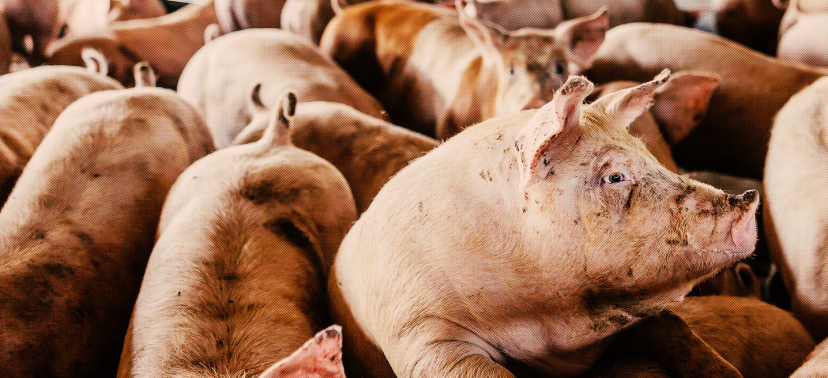DemocracyNews & Opinion
by Mia DiFelice
We all remember how the 2008 financial crisis devastated workers and families. Homes were foreclosed, jobs evaporated, small businesses shuttered. Essentials like gasoline and food grew unaffordable for millions.
Back then, we knew exactly who to blame: Wall Street titans, who gambled our economic future on short-term get-rich-quick schemes. But in the aftermath of that crisis, Wall Street walked away with a slap on the wrist and hundreds of billions of taxpayer dollars. In fact, markets have become less regulated since.
Now, in the midst of multiple crises at home and abroad, Wall Street speculators are diving into the chaos to make a quick buck. And once again, workers and families are bearing the brunt of their bets, in the form of higher prices.
Wall Street Speculation Raises The Cost of Living
The U.S. stock market is full of trading on commodities like copper, oil, grain, and other raw goods. Farmers and producers use financial tools like futures contracts to sell commodities to buyers. These contracts help producers and buyers to lock in stable prices in volatile markets.
But markets for commodities trading have become destinations for speculators, who trade for profit only, not for the commodities themselves. They now outnumber real producers and consumers in commodities markets.
Speculators buy and sell contracts that essentially bet on changes in the markets. For example, one could buy a contract that pegs next week’s oil price at $100 a barrel. The more the price rises over $100, the more the speculator profits off the contract.
But this creates perverse incentives. The more wildly commodity prices swing, the more money speculators can make.
Recently, speculation has fanned the flames of rising grocery and gasoline prices. For instance, in the oil market, Wall Street’s bets on oil far outnumber any real, physical trades on it. Speculators trade about 13 times the amount of oil that actually changes hands in real life.
Speculation’s growth massively affects prices. One economist estimates that in oil markets, speculation intensifies price changes rooted in market fundamentals (for example, supply and demand) ten-fold. It’s no coincidence that at a time of frenzied speculation, global food prices shot up 84% in two years and oil prices shot up 55% in just five months.
Wall Street Makes Billions Off Everyone Else’s Struggles
Under-regulated commodity trading has allowed a flurry of activity in the wake of recent global crises, which had already volatile markets swinging wildly. In early 2022, speculation on the rising prices of grains and oilseeds hit highs last seen in 2012. In January of this year, prices for fracked gas futures skyrocketed 46% in one day, the highest single-day gain on record.
The sharks of Wall Street had descended on the blood in the water.
As the invasion of Ukraine heightened energy anxieties, commodity traders pulled in record returns and commodity-trading hedge funds got their own boost. Meanwhile, banks trading commodities on Wall Street were propelled toward record profits — projected to total $18 billion by the end of the year.
Commodity trading is so lucrative that some of the biggest traders in commodity markets are corporations wrapped up in the commodities themselves. That includes meat and agricultural behemoth Cargill, oil refining and petrochemical giant Koch Industries, and many more megacorporations cashing in on today’s crises. Oil corporation Shell earns on average $4 billion a year from their trade activity.
Meanwhile, working families can barely get by.
We Can and Must Rein in Wall Street
Our recent gas and grocery prices have made it clearer than ever—the U.S. must do more to defend our economy and our families from Wall Street’s manipulation.
Following the 2008 financial crisis, the federal government cracked down on speculators — but it wasn’t nearly enough. In particular, the biggest trading firms successfully lobbied against position limits (limits on the number of contracts held by a single trader and class of traders). In 2020, the Trump administration punted a new position limits rule.
Elected officials in office must take the threat of speculation seriously — and Democrats are doing just that. After years of deregulation, accelerated by the previous administration, Democrats plan to hold Wall Street accountable.
Rep. Ro Khanna (D-CA), a member of the subcommittee that oversees the Commodity Futures Trading Commission, has made clear his worries about the role of speculation in our food and oil prices. Now, Sens. Elizabeth Warren (D-MA) and Cory Booker (D-NJ) have asked CFTC Chair Rostin Behnam to investigate the role of commodity markets in today’s inflationary prices.
We can only continue this progress with more and better Democrats in office.
You can help us fight corporate speculation by getting out the vote. Chat with three friends about heading to the polls!


FACTORY FARMS MAKE US SICK
Make a gift to ban factory farms ~and have it MATCHED $2-to-$1!

